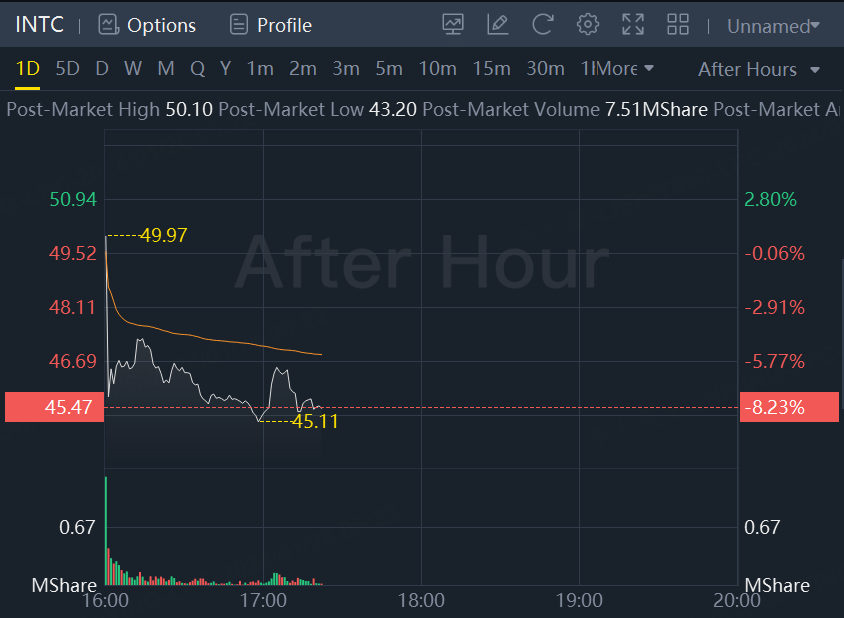Jan 25 (Reuters) - Intel on Thursday forecast revenue for the first quarter that could miss market estimates by more than $2 billion, as it grapples with uncertain demand for its chips used in the traditional server and personal computer markets.
Shares of the Santa Clara, California-based company were down about 8% in after-hours trading.
The chipmaker expects adjusted first-quarter revenue in the range of $12.2 billion-$13.2 billion, compared with analysts' average estimate of $14.50 billion, according to LSEG data. Intel forecast first-quarter profit of 13 cents a share, excluding one-time items. Analysts expected 33 cents a share. It was not immediately clear if the numbers were comparable.
Heavy investments have toppled Intel's gross margin, which fell to the mid-30s earlier in 2023, from prior highs of over 60%. Intel, however, mildly recouped with an adjusted gross margin of 45.8% in the third quarter. Intel reported a fourth-quarter gross margin of 48.8%.
Analysts have proclaimed 2024 as a "make-or-break" period for Intel. They believe 2024 will be the year that determines whether Intel actually stands to gain from the rollout of much- coveted artificial-intelligence PCs and its AI-enabling chips.
A shift in spending to AI data servers, dominated by rivals Nvidia and aspiring AI competitor Advanced Micro Devices (AMD) has sapped demand for traditional server chips - Intel's core data center offering. Intel's fourth-quarter data center revenue fell 10% to $4 billion.
Intel is one of the largest suppliers of PC chips by market share. Its weak forecast dampens hopes of the PC market recovering after some signs that the post-pandemic slump was over. Revenue in the client segment, which houses Intel's PC business, gained 33% to $8.8 billion during the quarter.
During the fourth quarter, shipments of PCs declined year-on-year for the eighth consecutive quarter, according to data from research firm Counterpoint.
Intel's self-driving technology unit, Mobileye, reported fourth-quarter revenue below estimates after warning of a pullback in orders from customers clearing inventory hurting its results this year.
Intel, which was once at the helm of the semiconductor industry as a leading chipmaker, has slumped in recent years. Under CEO Pat Gelsinger, turnaround efforts have amounted to a renewed focus on building manufacturing capabilities and advancing its semiconductor technology.

Comments